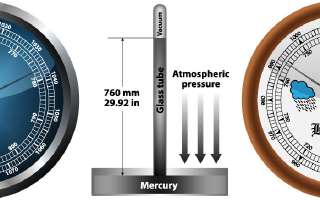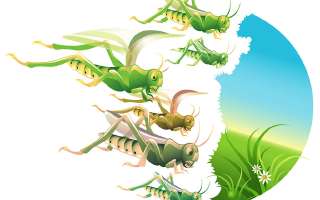210 items in this section. Displaying page 3 of 21
How Does Ice float?
A cool glass of water topped with huge chunks of ice is sure to quench your thirst on a hot summer day. But, before you guzzle the water, look at how the ice floats on the water surface. How do these large ice pieces manage to stay afloat? Ice floats because it is less dense than water. (If you take a one-litre container with ice and weigh it, it will be lighter than a similar container with water....
What are Volcanic Tubeworms?
In order to raise chicks the farmer keeps the eggs warm and is careful not to crush them. But when scientists in the University of Southern California rear tubeworms, they keep the immature worms very cold and under high pressure. You would think the scientists are being cruel by subjecting these little worms to such extreme conditions. They are not. The worms can thrive only under these circumstances, because they live in the deep sea where it is very cold....
What is the origin of OK?
‘I’m OK means ‘I’m fine’. But if you say the weather’s OK in a lazy drawl, it could mean ‘so-so’. When you respond with an OK at the end of someone’s explanation, you could be saying, ‘Alright, I get what you’re saying’. And when someone explains that ‘This is the way to do it, OK?’ it means, ‘Have you understood?’ What is the origin of OK? [Illustration by Shinod AP] One abbreviation, many meanings....
What is an ISBN number?
There are hundreds of thousands of publishers across the world, and millions of books get printed every year. Moreover, a book like The Adventures of Sherlock Holmes is a book that has been printed by several publishers. This makes the task of identifying a book very difficult. To overcome the problem of identifying books, publishers have came up with a unique numbering system. For instance, if 50,000 copies of The Adventures of Sherlock Holmes are printed by a publisher at one time (called an edition), all of them are identified by one number code....
Who invented Hello?
Hello, Hullo, Hallo, Hull-oo-oo-oo. You may say it softly or you may holler at the top of your voice, but the person at the other end knows that all you are trying to do is get in touch with a greeting. Legend has it that Thomas Alva Edison was the first to say hello over the telephone. But Edison didn’t invent ‘hello’ by a long shot. As a matter of fact, the greeting has been around for centuries much before the invention of telephone in 1885....
Do Whales and Dolphins see Blue?
Dolphins and whales live in the deep blue sea, but strangely these animals are not able to see the colour blue! Leo Peichl of the Max Planck Institute for Brain Research in Frankfurt and his colleagues discovered during routine tests that seals do not respond to the blue colour. Intrigued, they carried out similar tests on few other species, such as dolphins and whales, and found the same results. According to fossil evidence, whales are believed to have descended from a four-legged primitive ungulate (hoofed mammal) which lived on land and was similar to the modern day hippopotamus....
What is the Weight of Air?
As you stand in the middle of a playground or while you are sitting in your class, there is an immense weight right over your head, but you do not feel it! This is the weight of the atmosphere, or air, as we know it. Composed of nitrogen, oxygen, carbon dioxide and other gases, it surrounds the earth like an envelope. And, it extends almost a thousand kilometres above the Earth’s surface. Like all other substances, air also has weight....
Why do Locusts Swarm?
Have you ever tried chasing a frisky grasshopper? If you have, you will definitely know that scampering after a jumpy bug is not an easy task. Most species of grasshoppers have a keen sense of hearing and the moment they sense trouble, they can hop fast and furious! Sometimes, shortage of food turns grasshoppers into migratory insects as they venture out in search of newer pastures. This situation happens when the species begins reproducing rapidly and does not have enough food for all the members of its community....
How Far Away are the Stars?
The sun is a star, just like the thousands of others we see in the sky each night. But it looks so very big. Is it the biggest star? No. The only reason the sun appears so big is because it is closer to us than any other star. The sun is just 93,000,000 miles (or 14,88,000,000 km) away from the earth. That seems an awful lot of distance, but light can travel so quickly that the sun’s rays reach the earth in a little more than eight minutes!...
Why do we Blink?
How many times do you blink in a minute? Weird, who knows! Well, mostly people blink around 15 times a minute (Reader’s Digest – Why in the World). Blinking is an involuntary action that protects the eye. Most of our eye is enclosed in a bony socket covered with a layer of fat, which forms a protective cover. But when the eyes are open, one-tenth of the total surface area is exposed to the atmosphere. This means the eye, the most delicate and sensitive part of the body, has to withstand the dust present in the air....








